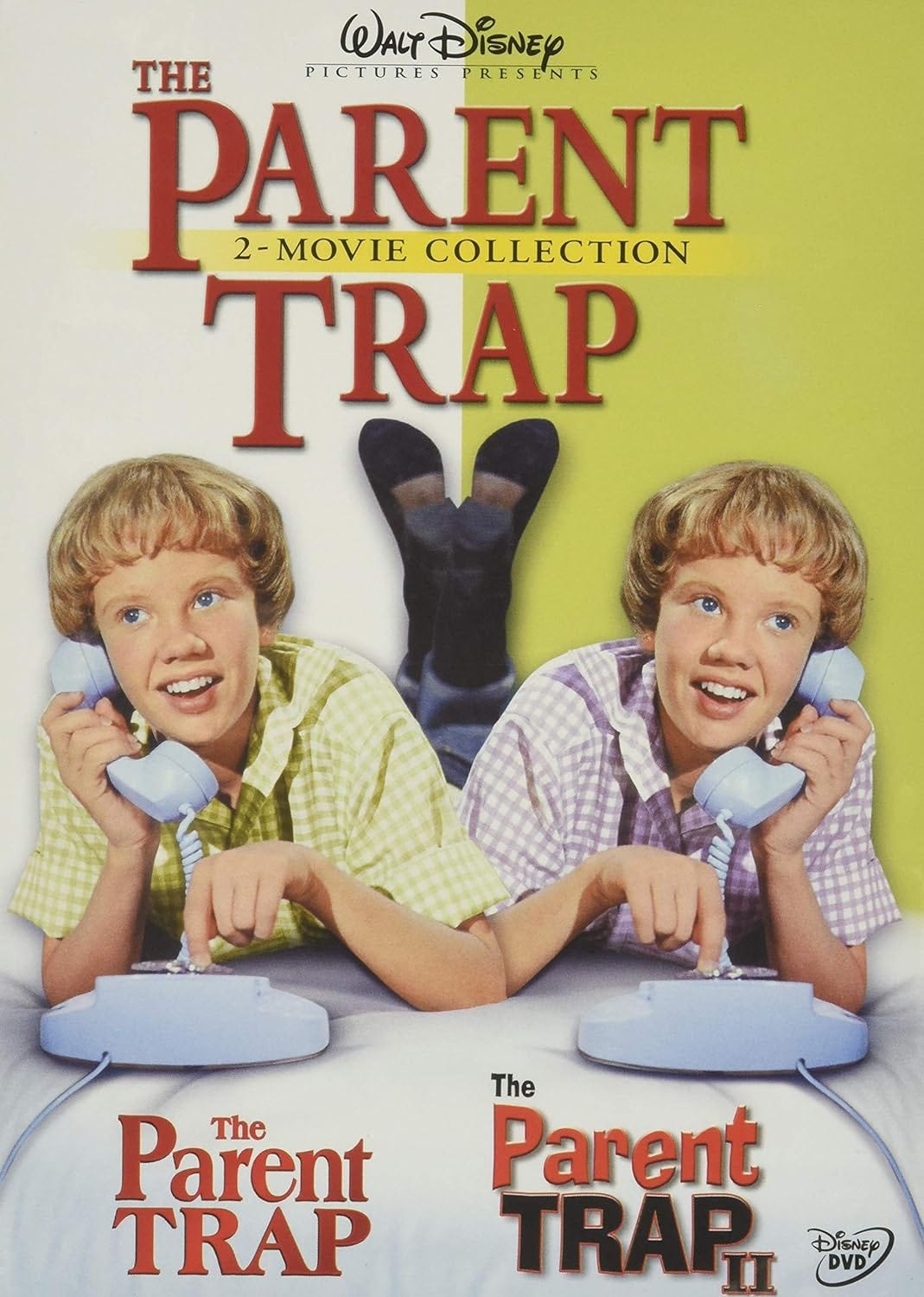Why We Tell Stories Part 1
So I’ve been watching a whole lot of short C dramas… buried in drama research. Yup a serious deep dive down all manner of rabbit holes. 10-minute badly edited episodes of ridiculously rich people behaving badly as befits their station. Some kind souls have pieced them all together into movie length shows. A thought occurs to me. It wouldn’t surprise me if these plots/screenplays turn out to be AI generated. Like processed food, it’s cheap, in abundant supply, somewhat addictive with sugar, spices and all kinds of unhealthy ingredients. Honey traps, revenge, the overuse of powerful aphrodisiacs, birth secrets, one-night stands, multiple-births, last minute saves, power struggles, swoony CEOs, Cruella wannabes. Recycle, rinse, repeat plots… with different actors. My favourite ones are variations of the Parent Trap theme. And of course the short dramas landscape is riddled with contract relationship yarns.
Parent Trap, for those unfamiliar with the franchise, is about a pair of precocious twins separated at a young age trying to get Mum and Dad back together. The 1961 and 1998 screen versions are both heartwarming in their own way. The low budget C versions are ridiculous in the extreme — super smart children who can build time travel devices and hack through the most secure firewalls. Certainly smarter than their single mother who pretends she can do everything by herself and ends up proving the children right — that they need a father. Especially one with plenty of clout. Mum is often a Cinderella type who was abused and exploited for the “good” of her dysfunctional family. A favourite of among them sees a set of quins plotting and scheming to let their father know that they exist and their mother is the woman of his dreams. Literally. It begins with a one-night stand in the blazing haze of love potion number 10. Nobody remembers who they slept with. It devolves into silliness when Mum tries in vain to hide the fact that there’s not just one or two or three kids hiding in the apartment but five or six. The father of her children is always some kind of CEO of a large family-owned conglomerate in town (usually the largest) who is happy to throw his weight around for the benefit of his newfound instant wife/family. Power matters absolutely. Because the much humiliated Cinderella and her children need near absolute power to crush not only her relentless step-mother and sister for good but also competition from rivals for the CEO’s affections. Might is right. For good to overcome evil, good must get stronger. Or have the weight of the biggest noise in town behind them.
The male lead is called upon to be unabashedly steadfast. He has to be because the mother of his children is a bundle of nerves. Her condition: Insecurity. She’s terrified he will steal her kids from under her nose because according to her he was just the sperm donor. It’s true that children cannot live on money alone but feeding a nest of hungry mouths is no easy feat for one woman who is desperately struggling to make ends meet. The CEO lead who is usually surrounded by gold-digging admirers has to jump through many hoops to show the mother of his children that he can be trusted with their future. The most important thing is that he is always right about the mother of his children even against objections from his snobby family because he concludes that a woman who is willing to give birth to a stranger’s children and raise them on her own is a virtuous one worth sharing his life with and protecting. He gradually comes to grips with the sacrifices that she has made and the humiliation she’s endured as a woman without a husband. More importantly with his fabulous wealth and connections, he is the 靠山 (backing) she needs to complete her revenge. And yes, revenge is almost always on the menu.
Of course they’re not all rom coms. Melodramas can be quite protracted and dark but I’m a sucker for angst. A fairly useless double-minded birth father who is largely putty in the hands of his second wife. Or materialistic birth father who doesn’t care about his daughters except for the price they fetch on the corporate marriage market. Good girl Cinderella gets sold off to the highest bidder. Then there’s the “ugly step sister” who wants legitimacy and tries to steal what’s rightfully Cinderella’s. The imposter is inevitably a thief, a liar and a murderer. The first thing she does is to destroy Cinderella’s credibility by robbing her virginity and agency — her most important currency in the marriage market. There are unseen forces at play however that ensures that 1) The good girl loses her virginity to a decent man and 2) The scheming woman with all her dirty tricks never entirely gets her hooks into the princely CEO who maintains his aloof stance until the fated reunion with Cinderella.
Because there is a lot of crazy money changing hands in these sorts of shows, greed is a crucial theme of the show. The notion that taking what’s not yours is naughty is sledgehammered repeatedly in these mini-series. The psychopathic villain, usually a woman, thinks she’s the Cinderella of her own drama. He/she projects aplenty managing to convince themselves that they are the victims with no self-awareness whatsoever. Life is unfair… you know the drill… so it is up to her to snatch, grab or destroy to get what she wants.
Contract marriages are always fun. And there are plenty galore. I’ve written about the sub-genre at length on other occasions. At the core of every contract relationship or fake relationship is the belief that the couple will fall in love eventually. There are those who are forced to marry by their elders and even end up divorcing each other. But so far… divorce is not the end. Divorce for the most part is a reset button and it’s always the male lead who has to get his act together to win back the woman he didn’t realise that he loved until she left.
It is a testament to the enduring power of the Cinderella narrative that these sorts of stories keep getting made… and watched. Clearly it’s universal and it goes to the core of what it means to be human. It’s about aspiration, struggle, and most importantly… justice. The ideal is that in the end everyone gets what they deserve — which can be a terrifying thought whichever way you look at it. It is also about community — the love of a supportive family is the pinnacle of happiness.
These short dramas certainly vary in quality. The budgetary constraints are obvious but no one seems to care although the editing and audio quality can be painful. Some of them could be better made by high school students. Like a lot of mainstream C dramas, endings are very hit and miss. I just wish they would work on their resolutions as hard as they do on the push and pull as well as the conflicts.
Also known as Douyin (or Tik-tok) dramas, they are in all likelihood palatable propaganda for the propagation of the next generation. Like other East Asian countries, the mainland is suffering from a serious demographic decline. On some level it’s a bit of “brainwashing” to encourage the man and the woman on the street to spend more time in the bedroom rather than the boardroom. The tacit celebration of children as a blessing is a breath of fresh air but it should be said that parents that aren’t committed to each other will leave them lost at sea. A wise person once said to me that the best thing parents can do for their children is to have a happy marriage. The statistics bear that out and it seems the Tik-tok propaganda machine are well aware of this. It isn’t just about population decline. Fatherlessness, marital breakdown, family violence are all on the agenda and addressed in whimsical fashion.
Because these shows are beholden to tropes, it’s best to suspend real world logic in some of the scenarios and premises. I can’t make sense of a story that starts with a well-resourced, well-connected head of a major corporation who sends his wife to jail or torments her for years based on the flimsiest of evidence. Without doing the most basic investigation. While the trail is fresh. The magical “five years later” when all is finally revealed are often head scratches as a result. Where’s the police in all this? It’s quite painful to see these things unfold in a higgledy piggledy manner just so that the show can moralize about the husband who abuses his wife for crimes she hasn’t committed. Far too many stories rely on mistaken identity and ensuing deception that never seems to end. Even worse are couples who can’t have adult conversations with each other. Second guessing. Cutting the other off at crucial moments. Assuming the worse. Jumping to conclusions. So yes, it’s free relationship counselling on steroids with riddled plot holes larger than a crater of a volcano about to erupt. Men, your wives need a lot of TLC. Women… hmmm… find a decent man who can protect you and your children. A happy family is a united one.
Seems like common sense values are making a comeback.





